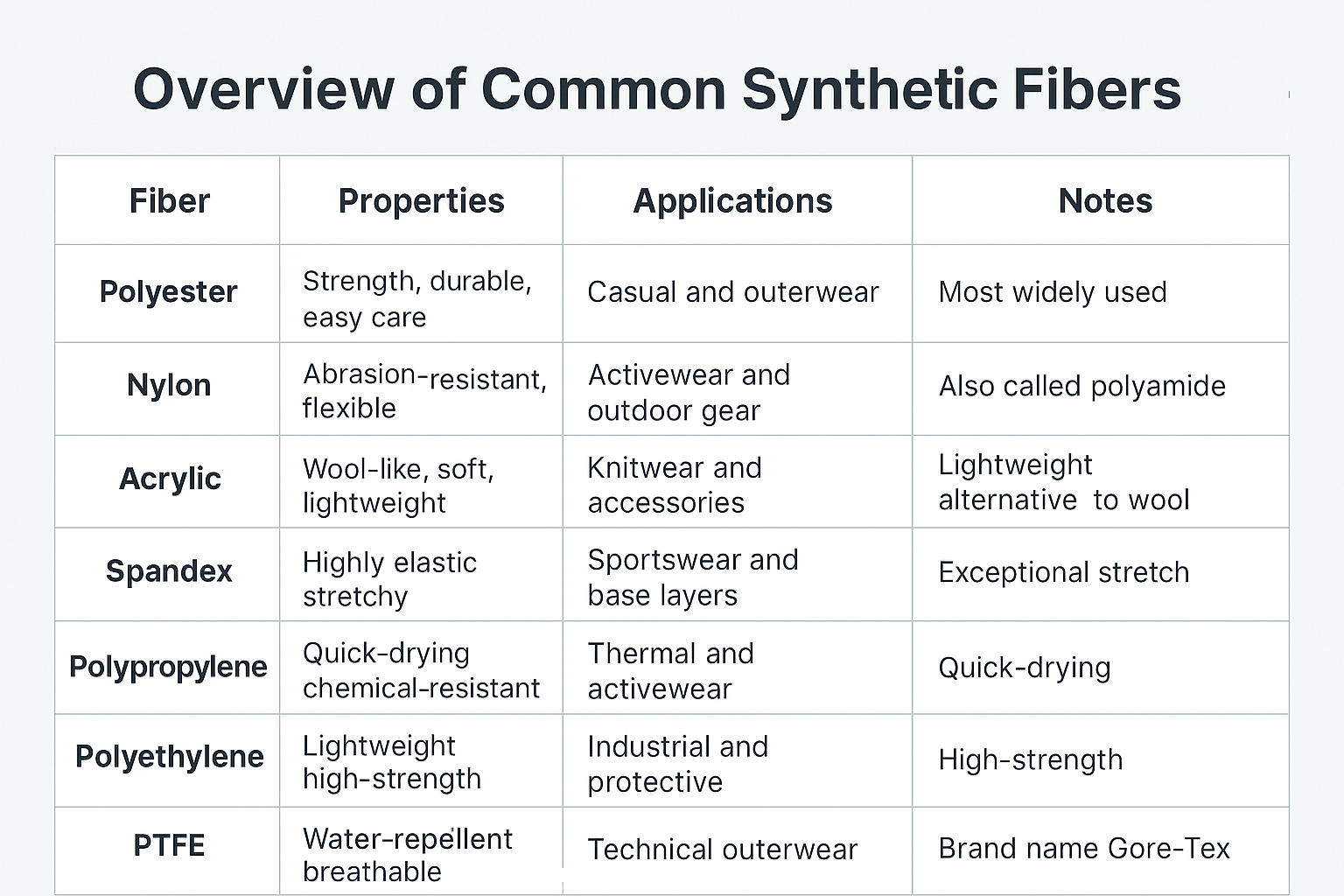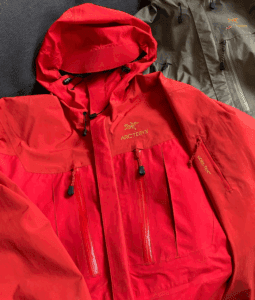
Synthetic fibers have become essential to modern textiles, offering functionality, durability, and versatility that natural materials alone cannot always provide. From everyday clothing to technical performance wear, these fibers shape the fabrics we rely on.
At the core of the synthetic fiber industry are seven major materials, each contributing unique properties that enable innovation across fashion, sportswear, and industrial applications.
The most widely used is polyester, known for its strength, durability, and ease of care. Lightweight yet tough, polyester fabrics are found in everything from casual apparel to technical outerwear.
Nylon, often referred to as polyamide, is another cornerstone of modern textiles. Praised for its high abrasion resistance, flexibility, and lightweight structure, nylon is a popular choice for activewear, swimwear, and outdoor gear.
For thermal insulation with a wool-like appearance, acrylic fibers offer a lightweight, soft alternative. Acrylic is often used in knitwear and accessories, valued for its warmth and easy maintenance.
No discussion of performance fabrics is complete without mentioning spandex, also known as elastane. Renowned for its exceptional stretch and recovery, spandex brings flexibility to sportswear, base layers, and fitted garments.
Polypropylene fibers are appreciated for being lightweight, quick-drying, and resistant to chemical exposure. These properties make them ideal for thermal underwear, activewear, and certain technical applications.
Another lightweight and high-strength material is polyethylene fiber, contributing to industrial textiles, protective equipment, and durable fabrics where strength-to-weight ratio matters.
Finally, PTFE fibers, often known through brands like Gore-Tex, deliver specialized benefits such as water repellency, breathability, and chemical resistance, commonly found in technical outerwear and high-performance garments.

While synthetic fibers have revolutionized the textile industry, modern consumers increasingly demand more than just functionality — they expect materials to support sustainability and long-term comfort.
That’s where FJORATEX introduces the next generation of synthetic innovation with the TIDEA® functional fiber series, combining advanced performance features with materials derived from marine biological resources.
TIDEA® fibers incorporate bio-based content sourced from ocean-derived materials, offering benefits such as far-infrared thermal insulation, antibacterial protection, and enhanced durability — all embedded at the fiber level, without relying on external coatings or additives.
By building upon the strengths of traditional synthetics and integrating marine-inspired materials, TIDEA® fibers redefine what performance textiles can achieve, delivering comfort, functionality, and a commitment to environmental responsibility for the modern consumer.
FJORATEX, Where Function Meets Fabric.


